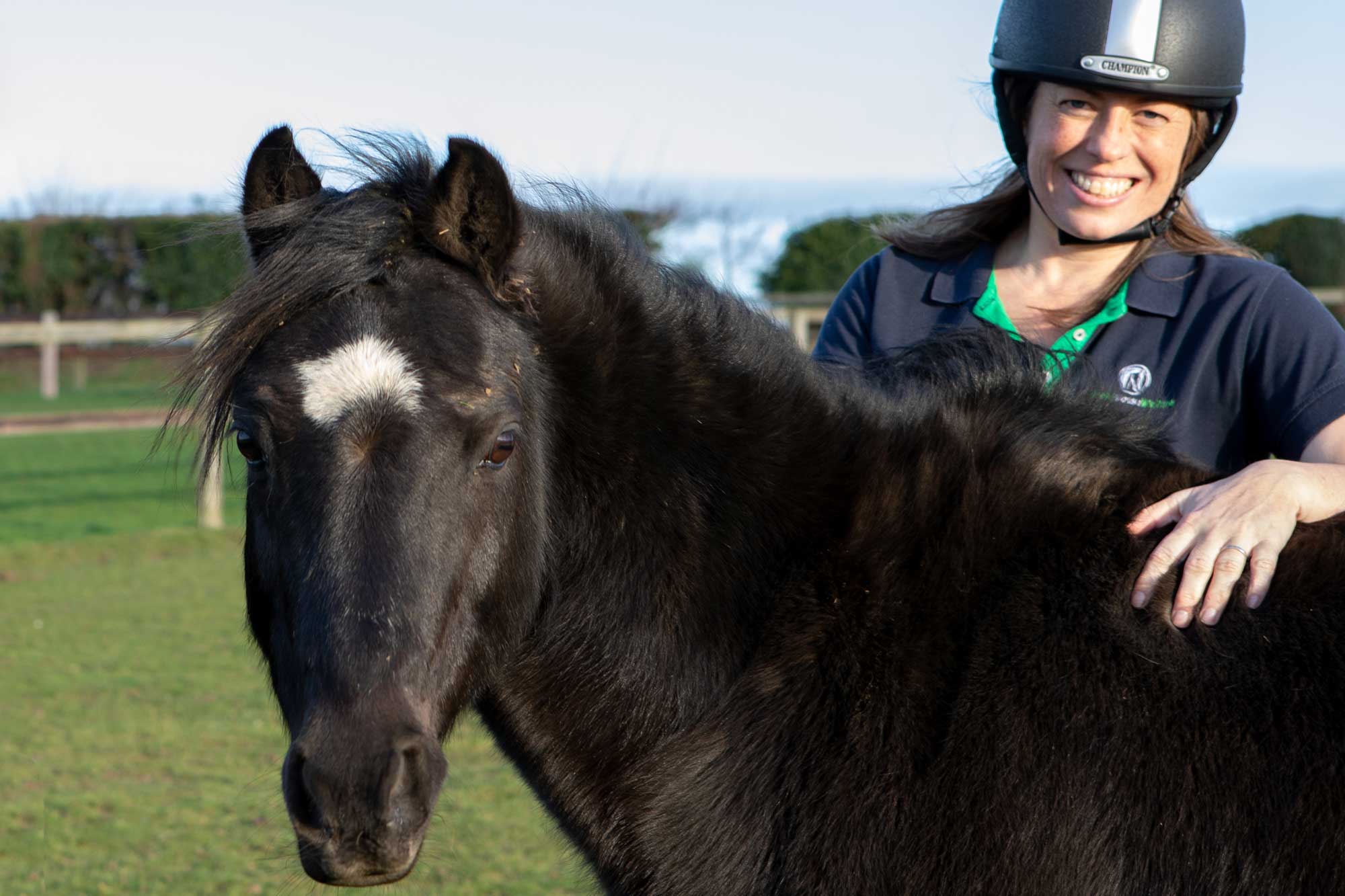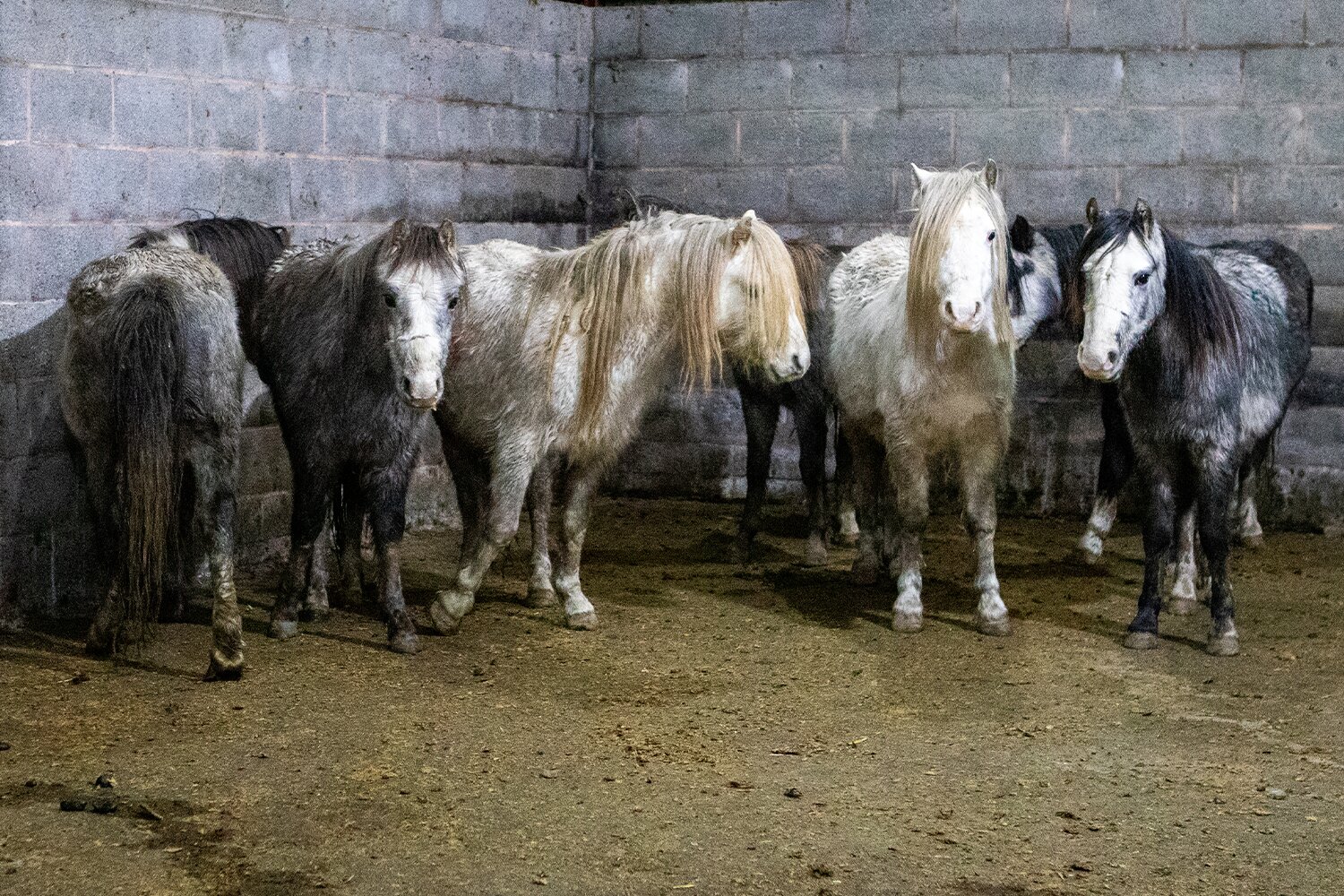Can you cut the costs of horse ownership without compromising on their care?
Chief Field Officer Claire Gordon looks at ways to cut costs without compromising on care.
Posted on 28/04/2020

We know that caring for a horse properly is never going to be cheap, but there are areas where you can reduce costs without compromising on your horse’s welfare. In addition to my role as World Horse Welfare’s Chief Field Officer, I am also one of the directors of the National Equine Welfare Council (NEWC) whose member organisations have worked together to come up with some useful tips for cutting costs, not care. Read on to find out more!
One of the most significant costs for many owners is livery. If you’re looking to cut costs, it’s well worth reviewing the facilities you’re currently paying for to see if you really need all of them. You don’t necessarily need to switch yards – and given the current situation it may not possible to do so right now. If you’re paying someone to provide all, or even part, of your horse’s daily care, could you do more yourself? Speak to your yard manager to see what options are available.
If the best option is to move yards (and it’s possible to do so), consider switching your horse to grass livery, or even renting a field – which becomes cheaper still if you’re able to arrange to share with a horse-owning friend. If you’re interested in renting a field, check it has the necessary facilities – such as water supply, electricity, shelter, secure fencing, storage – as well as a suitable quantity and quality of grass.
With so many bedding products on the market, it’s worth doing some research to check the best options for you and your horse. While there is an initial outlay involved, you might like to look into installing rubber matting in your stable as this can really help you get the most out of your horse’s bedding and save you £s in the long run.
Feeding is another area where you may be able to cut costs – most horses can manage very well on a forage-based diet, with the addition of a balancer if necessary. Forage should make up the main bulk of any horse’s diet and your vet or a qualified nutritionist will be able to advise whether your horse really needs additional feeds (or supplements) depending on their nutritional requirements (which will be influenced by their workload, breed and age, amongst other things). Some feed companies offer a free dietary advice service, so it’s worth having a look around and contacting a couple of different ones as you may be able to have a professional diet plan drawn up for your horse at no cost to you at all.
If possible (depending on the current situation/restrictions in your area), you could also look into working livery or sharing your horse with someone else to help reduce costs in all areas. If you do decide to share your horse, make sure your expectations match and that you’ve both signed an agreement. It’s best to get your agreement checked by a qualified legal advisor – although there may be a cost involved, it could save you a lot of money at a later date.
If you keep your horse on a shared yard, you might find that clubbing together to bulk buy with other owners will help you all save money and time. Many feed, forage and bedding suppliers offer reduced rates for larger quantities. You could also ask your vets, farriers and other professionals if they can reduce rates for group visits. Sharing daily duties by arranging a rota can save you time – and fuel! – if one person can do morning checks and another evening checks (during the current crisis this also helps to cut down on journeys and reduce the number of people on yards at one time).
Though it can be tempting to look at other ways you can save costs, routine preventative health care is essential, should not be skimped on and can actually save considerable costs associated with preventable disease later. Though the present situation is making things a bit more difficult as not all vets are currently providing routine veterinary care, it’s worth having a chat with your vet about your horse’s vaccinations, worm-control programme, dental checks and feeding routine to check you’re using the most effective and economical regimes for your particular horse.
It’s vital that your horse has a regular footcare regime, even if he or she is unshod. It would be worth discussing shoeing options with your farrier if your horse is shod all round, as you may find that depending on their workload they don’t need to have a full set of shoes.
It’s worth remembering that false economies can cost you far more money in the long run, so never compromise on the following essentials:
- Proper veterinary care
- Vaccinations
- Regular hoof care
- Worming and dental checks (these can be reviewed but not avoided)
- Professional services – don’t use a cheaper, unqualified person to do a professional’s job
- Repairs to damaged property and equipment
- Insurance – if your horse isn’t insured, you need to know you can pay any unexpected vet bills, bearing in mind that in some circumstances these can quickly build to thousands of pounds
Another thing to remember is that horse care costs generally increase in the winter, so it’s important to be prepared for that if you get a new horse in the summer. A further point to consider (and as horse owners ourselves we know it’s very easily done!) is not to get drawn in by marketing hype or peer pressure. All horses are individuals, so think carefully about what your particular horse really needs to keep him or her happy and healthy.
All this being said, if you do find that the costs of looking after your horse properly have become too great, NEWC has put together a guide to Rehoming Responsibly which you might find useful. Hopefully the tips above will help you cut the costs of looking after your horse without compromising on their care, but if you do find that you need to rehome your horse it’s really important to do so carefully. If you’re worried about the best thing to do for your horse in that situation, you can always give our Advice Line a call in office hours on +44(0)1953 497238 and one of our team will be very happy to talk you through the best options – or indeed any other horse care queries you may have.
If you’d like to download NEWC’s PDF guide to cutting the costs of horse ownership without compromising on welfare, you can do so below.
Cutting costs without compromising on welfare
N.B. Please note that some points in this blog reflect the restrictions current in the UK at the time of publishing on 28th April 2020.
Topics
Related Blog Posts

Plan for an emergency when you’re not around – help us to help your horse
Deputy Chief Field Officer Jon Phipps has top tips for owners on making plans just in case your horse injures themselves when you’re not there.

How to help a needle-shy horse overcome their fear
Grooms Amy and Emily explain how they work with horses who are nervous with needles before a visit from the vet.
Recommended News Articles

Large number of ponies pose challenge for rescue charities
A large herd of forty ponies has been taken in by rescue charities after the sudden death of their owner.

Rescued ponies get a second chance at life as owners are banned from keeping horses
Three ponies find loving new homes and foal Bunny pairs up with little orphan Mildred.

Rehoming record smashed
We are delighted to announce that we rehomed a record total of 378 horses and ponies during 2021
Enjoy reading stories like this?
Join over 55,000 other horse lovers and sign up for our email newsletter

Join over 55,000 other horse lovers and sign up for our email newsletter
Sign me up now
